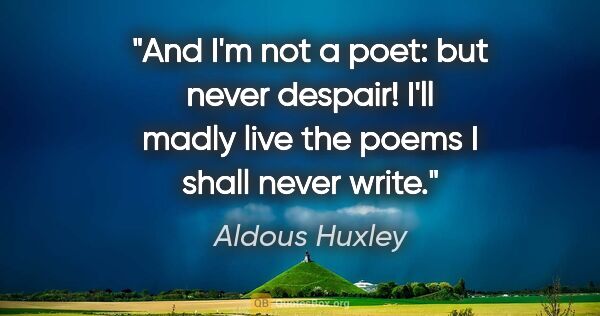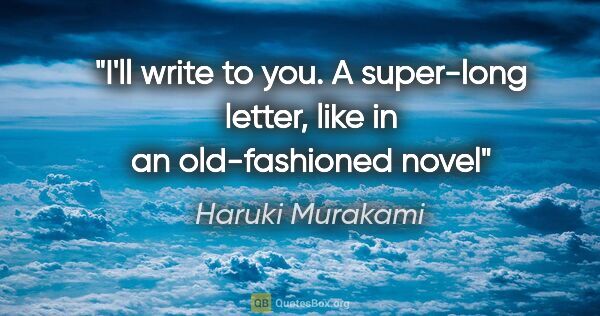Writings Quotes (page 140)
I am deeply sensitive to the spell of nationalism. I can play about thirty Bohemian folk songs ... on my mouth-organ. My oldest friend, who is Czech and a patriot, cannot bear to hear me play them because he says I do it in such a schmalzy way, 'crying into the mouth organ'. I do not think I could have written the book on nationalism which I did write, were I not capable of crying, with the help of a little alcohol, over folk songs, which happen to be my favourite form of music.
Ernest Gellner
When I Read the Book"When I read the book, the biography famous, And is this then (said I) what the author calls a man's life? And so will some one when I am dead and gone write my life? (As if any man really knew aught of my life, Why even I myself I often think know little or nothing of my real life, Only a few hints, a few diffused faint clews and indirections I seek for my own use to trace out here.)
Walt Whitman
It's no good. I've been trying to sleep for the last half-hour, and I can't. Writing here is a sort of drug. It's the only thing I look forward to. This afternoon I read what I wrote... And it seemed vivid. I know it seems vivid because my imagination fills in all the bits another person wouldn't understand. I mean, it's vanity. But it seems a sort of magic... And I just can't live in this present. I would go mad if I did
John Fowles
You'll write to me, won't you?" Albus asked his parents immediately, capitalizing on the momentary absence of his brother."Every day, if you want us to," said Ginny."Not every day," said Albus quickly. "James says most people only get letters from home about once a month."We wrote to James three times a week last year," said Ginny."And you don't want to believe everything he tells you about Hogwarts," Harry put in. "He likes a laugh, your brother.
J. K. Rowling
When I began writing these pages I believed their subject to be children, the ones we have and the ones we wish we had, the ways in which we depend on our children to depend on us, the ways in which we encourage them to remain children, the ways in which they remain more unknown to us than they do to their more casual acquaintances; the ways in which we remain equally opaque to them.
Joan Didion
Sure, I’m dramatic and sloppily semi-cynical and semi-sentimental. But, in leisure years I could grow and choose my way. Now I am living on the edge. We all are on the brink, and it takes a lot of nerve, a lot of energy, to teeter on the edge, looking over, looking down into the windy blackness and not being quite able to make out, through the yellow, stinking mist, just what lies below in the slime, in the oozing, vomit-streaked slime; and so I could go on, my thoughts, writing much,...
Sylvia Plath
I ate in the morning what I would digest in the evening; I swallowed as a boy what I would ruminate upon as an older man. I have thoroughly absorbed these writings, implanting them not only in my memory but in my marrow. (Quoted by Josh Foer in Moonwalking With Einstein: The Art and Science of Remembering Everything)
Petrarch
Well, it kind of hurts when the kind of words you write. And kind of turn themselves into knives. And don't mind my nerve you can call it fiction'Cause I like being submerged in your contradictions, dear'Cause here we are, here we are. Although you were biased, I love your advice. Your comebacks they're quick and probably Have to do with your insecurities. There's no shame in being crazy depending on how you take these. Words they're paraphrasing this relationship we're staging. And it's a...
Jason Mraz
Well then, we went and had tea with Henry James today…and Henry James fixed me with his staring blank eye—it is like a childs marble—and said ‘My dear Virginia, they tell me—they tell me—they tell me—that you—as indeed being your fathers daughter nay your grandfathers grandchild—the descendant I may say of a century—of a century—of quill pens and ink—ink—ink pots, yes, yes, yes, they tell me—ahm m m—that you, that you, that you write in short.’ This went on in the public street, while we all...
Virginia Woolf


